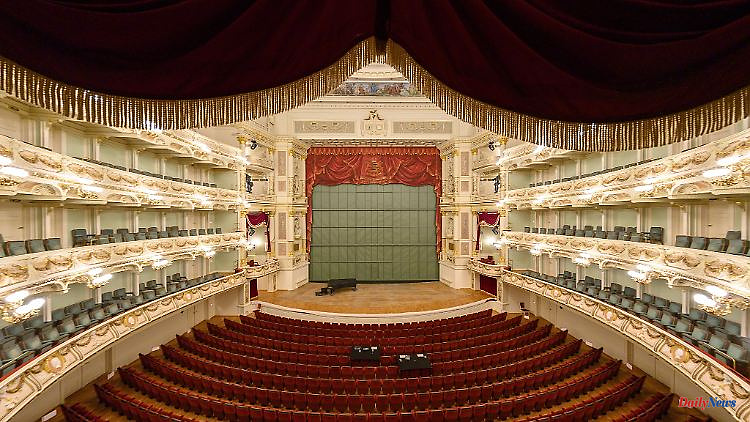The corona virus also infected opera operations for more than two years. In the meantime, the situation in front of and on stage has almost normalized. Still, there are aftermath and changes.
Dresden (dpa/sn) - The corona test station for staff is gone, the visitors are back: the Saxon State Opera Dresden is in normal operation at the end of the third year of the pandemic and is approaching the high occupancy rates of the time before Corona. "In December we had a capacity utilization of around 85 percent across all divisions. That's phenomenal," said director Peter Theiler of the German Press Agency. At the beginning of the season in September it was just under 75 percent, but now around half of the visitors come from outside again. At peak times, the Semperoper had an occupancy rate of 93 percent in recent years.
Theiler drew a differentiated conclusion of the pandemic seasons, in which the renowned opera house was not able to receive any or only a few spectators for longer periods. "We also learned a lot from it. In the past, everything could be planned and prepared well. The schedule could be implemented with a certain feeling of self-evidence. The pandemic has put a damper on this sense of security." It was no longer possible to get into a control mode. "That opened our eyes to be vigilant and careful. We also learned a lot in dealing with each other."
The director defended the protective measures, which were based on the country's regulations. "We followed the rules because no one could know how things would turn out. We had no idea how dangerous the virus was. We just have to think about the many deaths." In retrospect, one or the other might have been done differently. "It was unavoidable that some things led to tension and resentment. However, the measures taken in the first phase were correct, even given the current state of knowledge. How could one have decided otherwise in a situation in which there were neither medications nor vaccinations and many People died."
Theiler acknowledged that the pandemic is still having after-effects to this day. Overall, the subsidized cultural sector in Germany survived the crisis well. This is certainly different for private operators. "We still have bottlenecks when it comes to casting and planning - such as hiring directors." All stages would now want to catch up on the productions that were postponed in the pandemic. "There's a bit of a muddle about who does what and when." This has a particular effect on a house of the size of the Semperoper, which works with many guests who also make guest appearances in Milan, Vienna, Paris, London, Munich or Berlin.
"During the pandemic, we couldn't properly maintain the repertoire because the game was idle," Theiler mentioned another critical point. Many planned revivals were therefore left undone. "This means that, on the one hand, the workload for a revival is greater due to limited rehearsal times and the lack of rehearsal stages, and on the other hand, the planned artistic thread could not be continued over two seasons."
"Some things have changed, including the behavior of visitors," emphasized Theiler. "But people come back. People like to go to the theatre, the opera, the ballet or a concert again - for a live experience. Anyone who thought that the future would only play out in front of the television or on the Internet will now taught otherwise." But there are changes in booking behavior. Many would now decide to go to the opera at very short notice and only come to the performance at the last moment: "Sometimes we are literally overrun at the box office."
"The repertoire also includes pieces that are not so well known and are more difficult to sell. We feel obliged to bring our audience closer to works that are less accessible or played less frequently," Theiler advertised for a wide range of artistic offerings. The Semperoper has 30 works in its repertoire this season and ten premieres. Theiler considered the staging of the Shostakovich opera "The Nose", directed by Peter Konwitschny, to be a highlight of the opera year in Dresden that was coming to an end. That gave Dresden a special international resonance.












